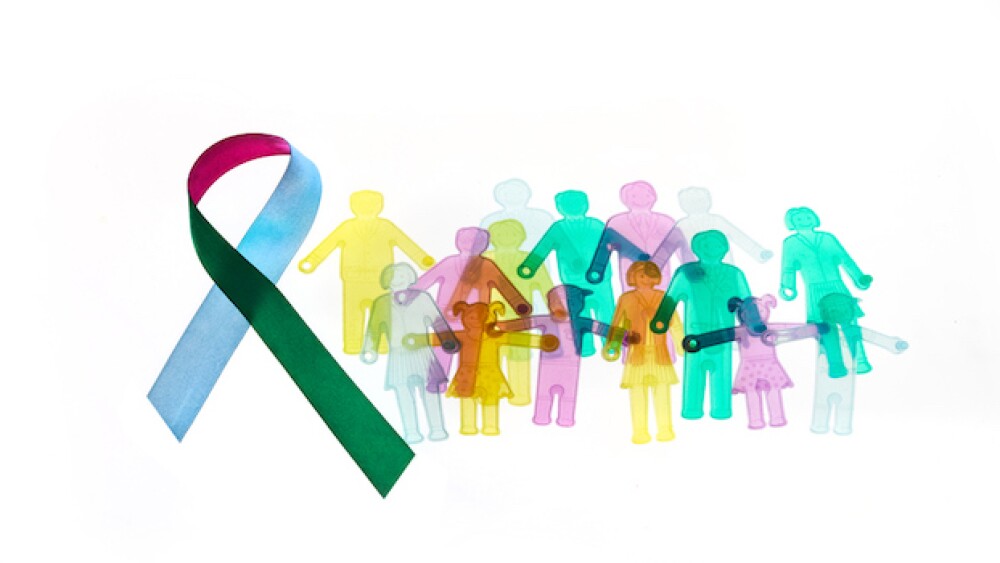A new clinical trial funded by the Canadian Cancer Society in partnership with the Canadian Institutes of Health Research is testing a promising treatment to repair brain injury and improve quality of life in survivors of childhood brain cancer.
Trial is 1 of 6 projects aiming to improve quality of life for people with cancer and survivors
TORONTO, Sept. 15, 2020 /CNW/ - A new clinical trial funded by the Canadian Cancer Society (CCS) in partnership with the Canadian Institutes of Health Research (CIHR) is testing a promising treatment to repair brain injury and improve quality of life in survivors of childhood brain cancer.
An estimated two-thirds of childhood cancer survivors experience at least one chronic or late side effect from their cancer therapy. For children and teens who survive medulloblastoma, a brain tumour that is most commonly diagnosed in children, these side effects often include long-term cognitive challenges. While successful at treating cancer, the aggressive therapy they receive can damage growing brains, leading to life-long difficulties that impact a person's ability to do well in school, get a job or live independently.
With the support of a CCS/CIHR Cancer Survivorship Team Grant, Dr Donald Mabbott, a psychologist and senior scientist at Toronto's Hospital for Sick Children, is leading a national clinical trial that could help mitigate these harmful side effects. The trial will test whether a common diabetes drug called metformin can boost cognitive function and enhance recovery in childhood brain cancer survivors. If successful, this new treatment could lead to a shift in care from helping children and families manage potential long-term cognitive challenges to actively preventing and treating them at their root.
"This funding is allowing us to build on our earlier work where we showed that metformin, a drug that is known to simulate stem cells in the brain, may induce brain growth and cognitive recovery, which had not been shown before," says Dr Mabbott. "With support from CCS and CIHR, we can now conduct a large clinical trial across Canada to definitively answer whether this is true. We're really moving from a model that says 'let's help survivors manage and compensate for their injury' to one where we actually treat the injury itself by harnessing the brain's own capacity for repair."
This project is one of 6 announced today as part of the inaugural CCS/CIHR Cancer Survivorship Team Grants in partnership with the Alberta Cancer Foundation. With a joint investment of $13.4 million, the grants represent the largest, first-of-its-kind cancer survivorship research initiative in Canada.
"Eight in 10 cancer survivors report facing physical and/or emotional challenges after their treatments end," adds Dr Stuart Edmonds, Executive Vice President, Mission, Research and Advocacy at CCS. "With the support of our donors, these unique pan-Canadian grants will focus on addressing the vital need for improved quality of life for people who are living with and have survived cancer, enabling them to live longer, fuller and healthier lives."
Each grant is nationwide in scope, bringing together researchers, clinicians, survivors and caregivers to address key questions in cancer survivorship. With integrated strategies for patient engagement and knowledge translation, teams will work collaboratively to deliver results that will make a real difference in the lives of people affected by cancer.
In addition to the metformin clinical trial, the other 5 projects will focus on:
- developing virtual survivorship clinics for breast and prostate cancer survivors to help more people access the support they need after cancer;
- creating community-based fitness programs to help survivors living in rural areas exercise more and have a higher quality of life;
- making cancer rehabilitation more effective and accessible;
- improving heart health in people with breast or prostate cancer whose treatments may leave them at higher risk of heart disease; and
- equipping young women with breast cancer with confidence, skills and resources to deal with the unique survivorship challenges they face.
"Ongoing research into cancer diagnosis and treatment has helped many Canadians survive cancer. It is now essential that we also support research aimed at improving the quality of life of those experiencing challenges living with and beyond cancer," says Dr Stephen Robbins, Scientific Director of the CIHR Institute of Cancer Research. "CIHR is proud to invest $5 million in these grants."
The outcomes and learnings of the survivorship grants will play a key role at CCS's Centre for Cancer Prevention and Support currently under construction in Vancouver, with completion expected early in 2021. The new Centre will serve as a national hub of research and innovation for cancer prevention and survivorship that accelerates research into action and drives progressive system change, ultimately improving health outcomes for Canadians. The learnings from these grants will be amplified by the Centre with staff translating knowledge into programs and initiatives to improve quality of life for people who have survived cancer.
About the Canadian Cancer Society
The Canadian Cancer Society (CCS) is the only national charity that supports Canadians with all cancers in communities across the country. No other organization does what we do; we are the voice for Canadians who care about cancer. We fund groundbreaking research, provide a support system for all those affected by cancer and shape health policies to prevent cancer and support those living with the disease.
Help us make a difference. Call 1-888-939-3333 or visit cancer.ca today.
SOURCE Canadian Cancer Society (National Office)




